


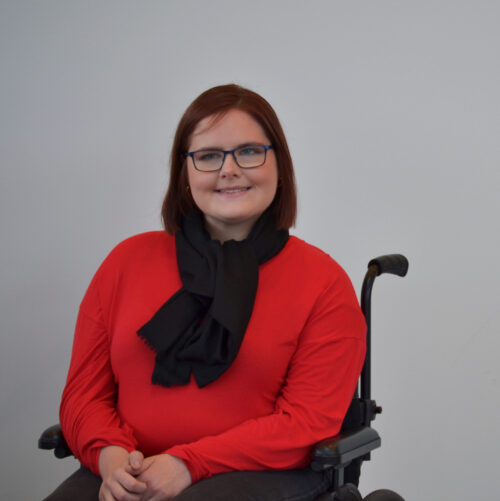
Áslaug Ýr Hjartardóttir
myndir:
Stefanía Emils
@stefaniaemils
stemils.cargo.site
translation:
Gyða Guðmundsdóttir
“Who is your biggest role model?”, the lecturer asked, “perhaps it’s Helen Keller?” he continued.
He suggested Helen Keller like it was a given, because the whole audience was deafblind, both deaf and blind, that is. The lecturer in question was a staff member of a Nordic summer camp for deafblind teenagers and had just finished sharing his life story as well as talking about his biggest role models. I rolled my eyes at his suggestion, as Helen Keller is a well known example and perhaps a bit over-used among us deafblinds, much like Vigdís Finnbogadóttir or Michelle Obama.
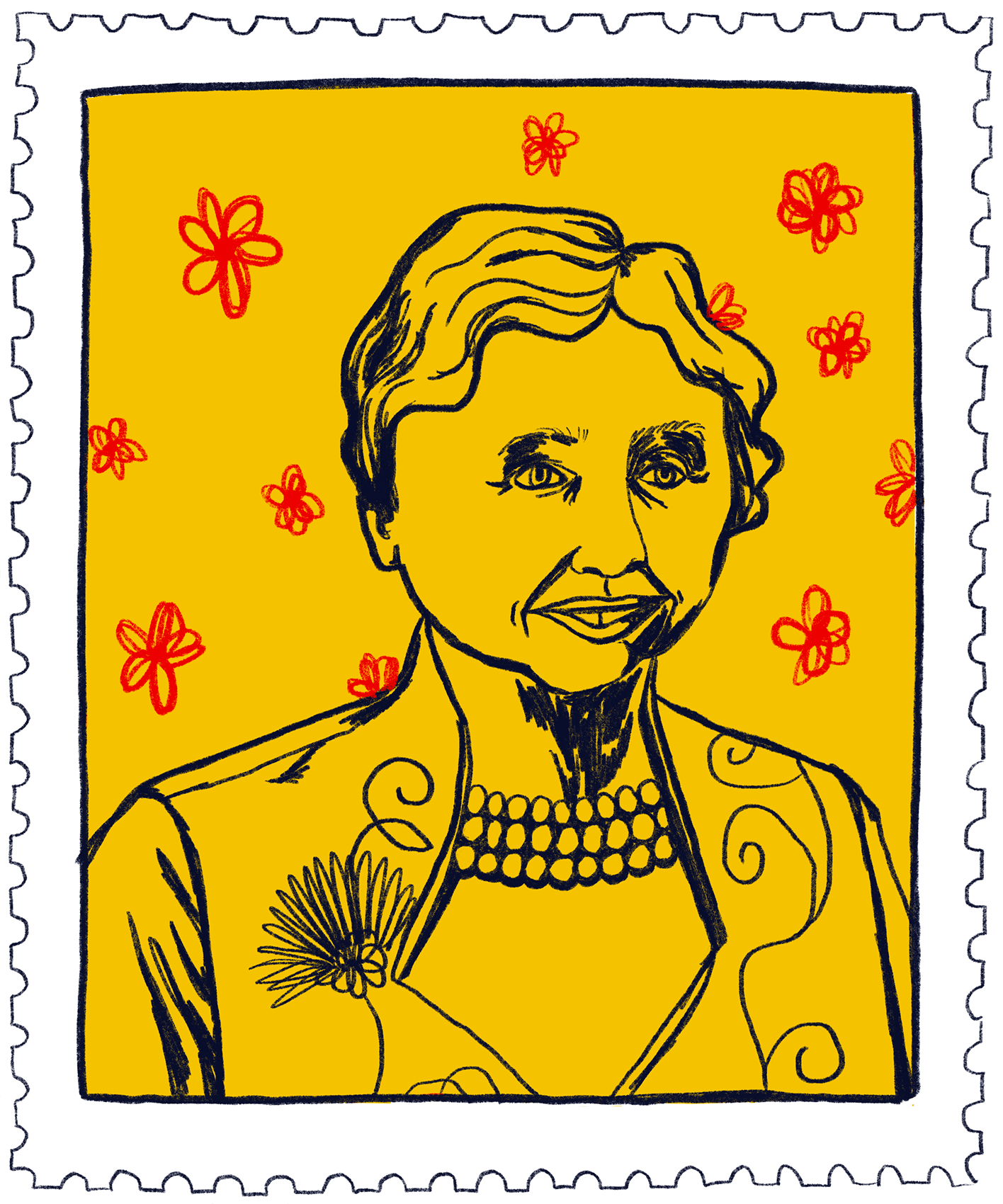
But who was Helen Keller? Long story short, she was probably one of the first disabled activist in the world and the most famous one. She was an upper class, american woman born in 1880. So she was up in the 20th century, fighting for the rights of disabled people, joining the working class and women rights movements, as well as being apposed to capitalism, racism and war.
Not only that, but by being deafblind herself she made history by being the first deafblind person to graduate university. She published books and essays, including her self biography My Life which has since been cinematised.
In the minds of many people, not only those who are deafblind, Helen is a very remarkable person. I have often heard deafblind people say that she is their role model and she was definitely a trail blaser. To this day, events are held in her name, such as the Helen Keller World Conference and in the United States an institution is named after her; The Helen Keller Center. Last but not least, the international day of the deafblinds is celebrated on her birthday, June 27. People often forget that she was a complicated person and did not only fight for the rights of deafblind people, but also participated in political discussions and brought forward very controversial ideals in her time. Despite all that, she is most famous for being deafblind and for being able to learn communication by the age of seven: her story can by found in many american children’s book especially the story about her teacher Anne Sullivan who dipped her hand in a well and helped her spell WATER.
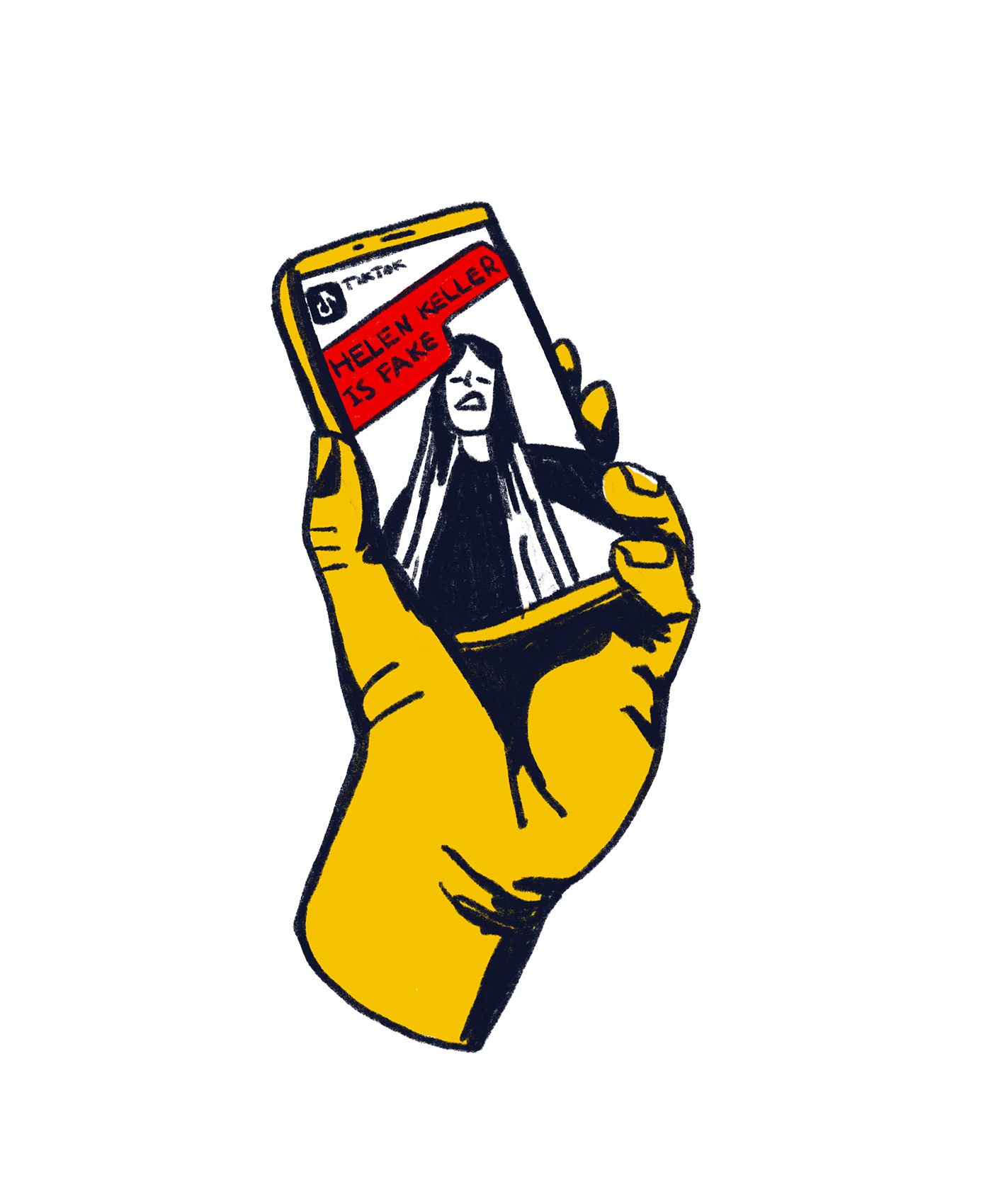

Recently I was shocked by a discussion on Tiktok where the existence of Helen Keller was questioned. The conspiracy theories suggest that Helen was never admitted into university at the time due to her disability nor that she participated any debates. That her and her life was pure fabrication and many seamed to believe that conspiracy theory. This came as a shock to the deafblind community, as the discussions evolved on social media. These conspiracy theories reveal ableism and how it is blossoming on mediums such as Tiktok. Hele Keller did indeed belong to the minority of disabled women, but we mustn’t forget that she was from the upper class society in the United States, a position that allowed er to receive help, get an education and become an activist of her time. She left behind self biographies and essays and she became famous enough to get her face on a post stamp. By assuming that these things were not possible due to her disability is called ableism, and it is sad to se how it affects even the foremost advocates of disabled people.
We can of course question what people really know about this woman, if they have read her works and know her contributions to the social debate — or if they only know the story about a miracle by the water. Either way ableism is born out of ignorance.


Back to the lecturer in the summer camp, and my answer to the question. It was of course not Helen Keller, as I do not know her well enough nor agree with everything she said or did. So I ended up replying: “That is a big question.. I guess it is my grandmother”.
Mothering: Ordinary Extravaganza
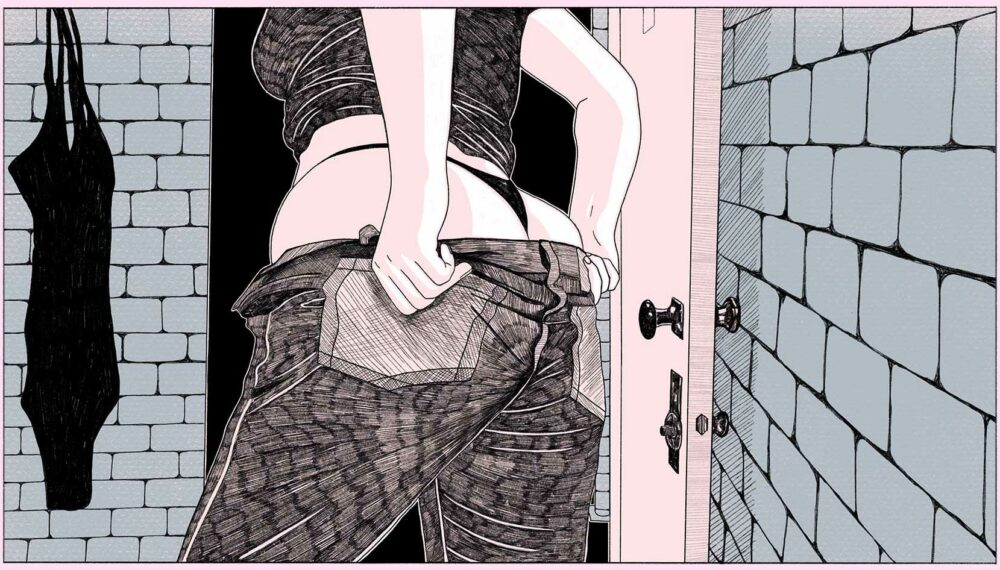
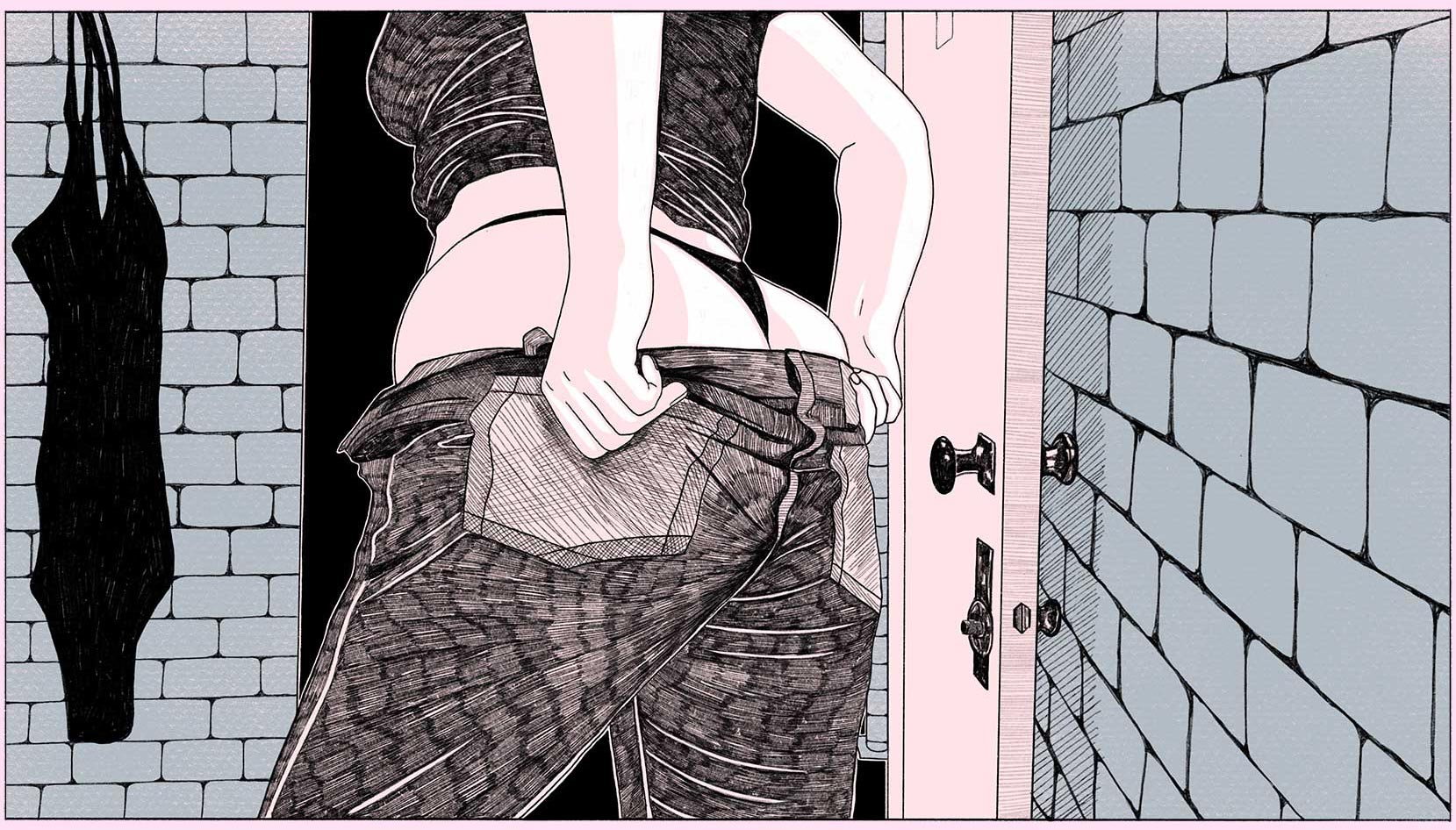
My Right to Exist
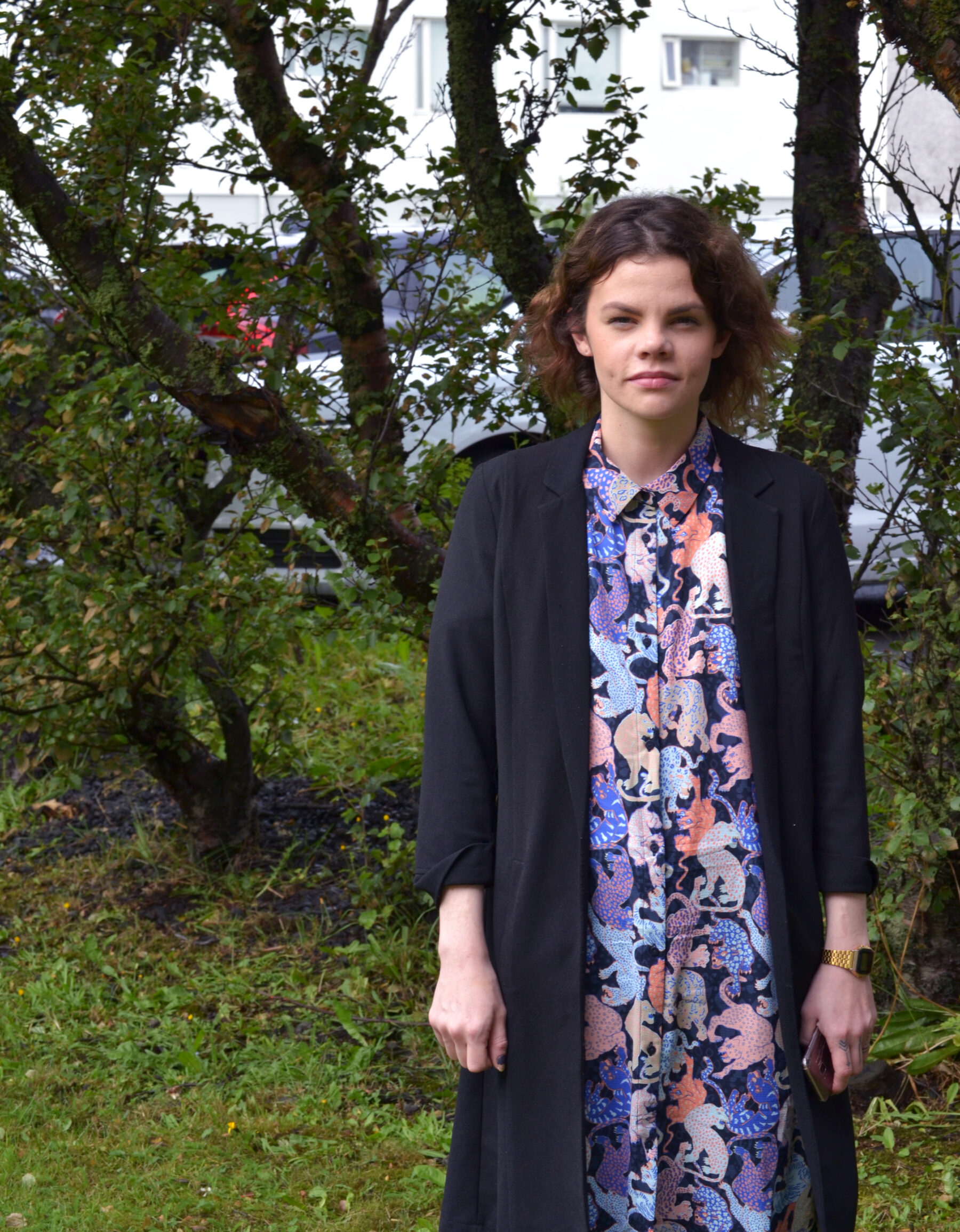

The Disabled Weightlifter No-One Knows
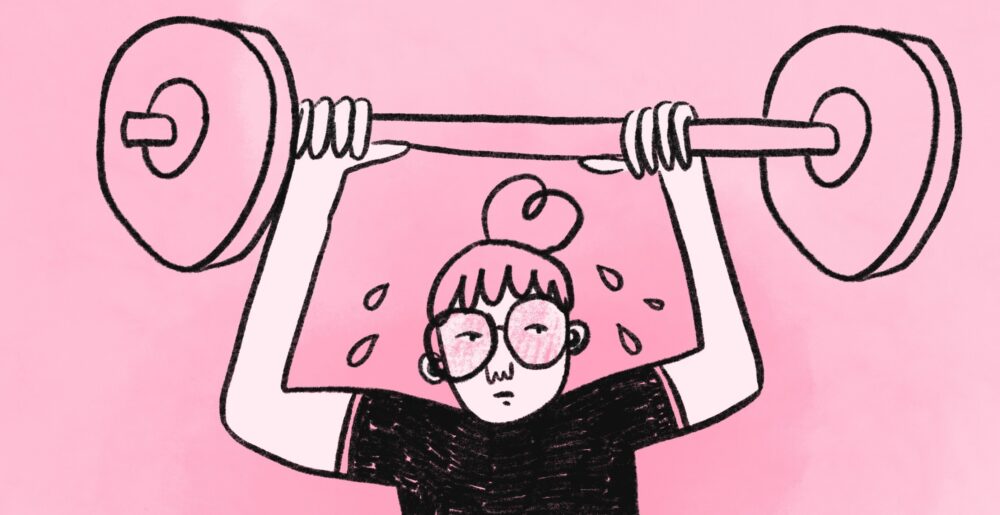
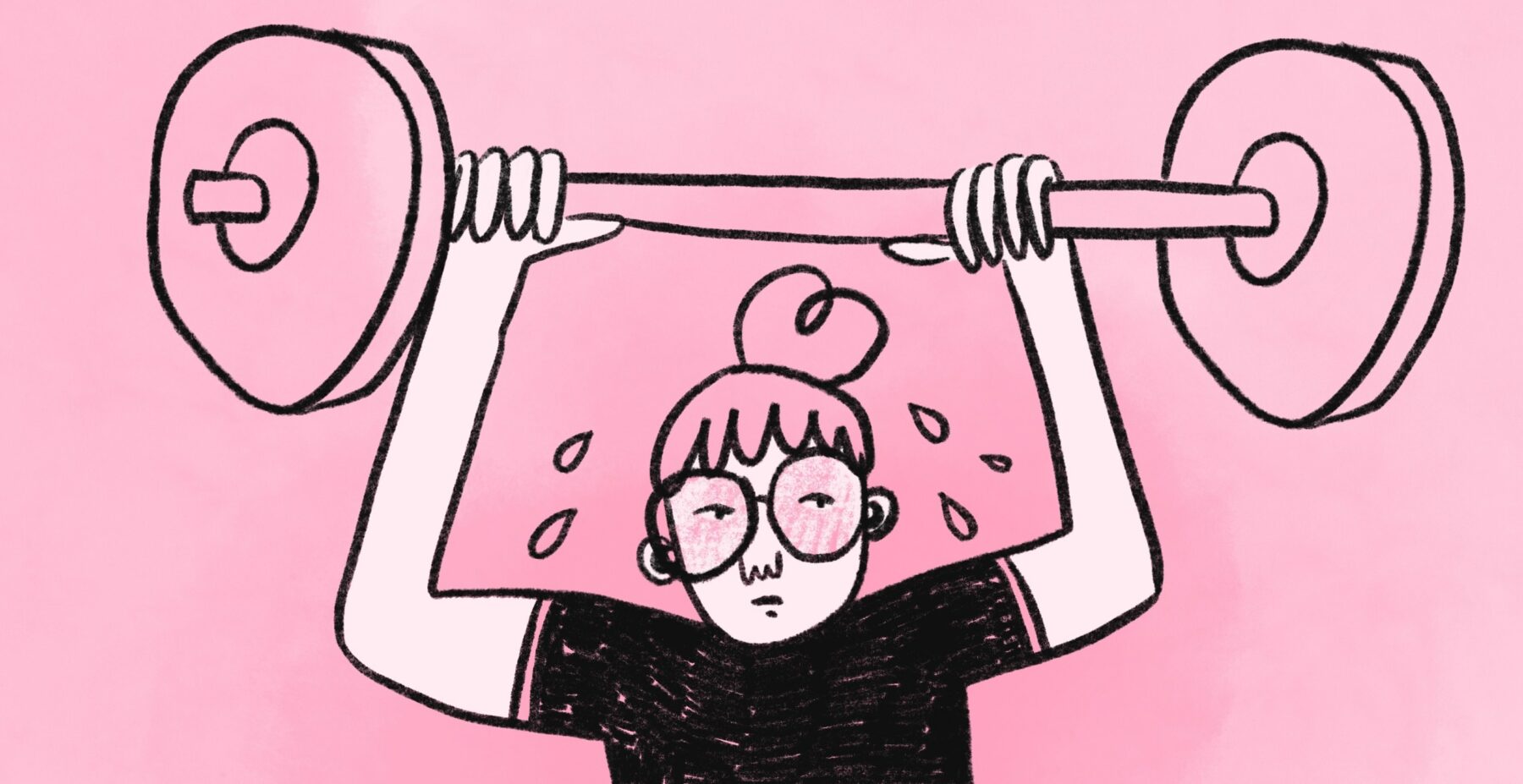
Low-wage jobs: Rub, scrub and toil
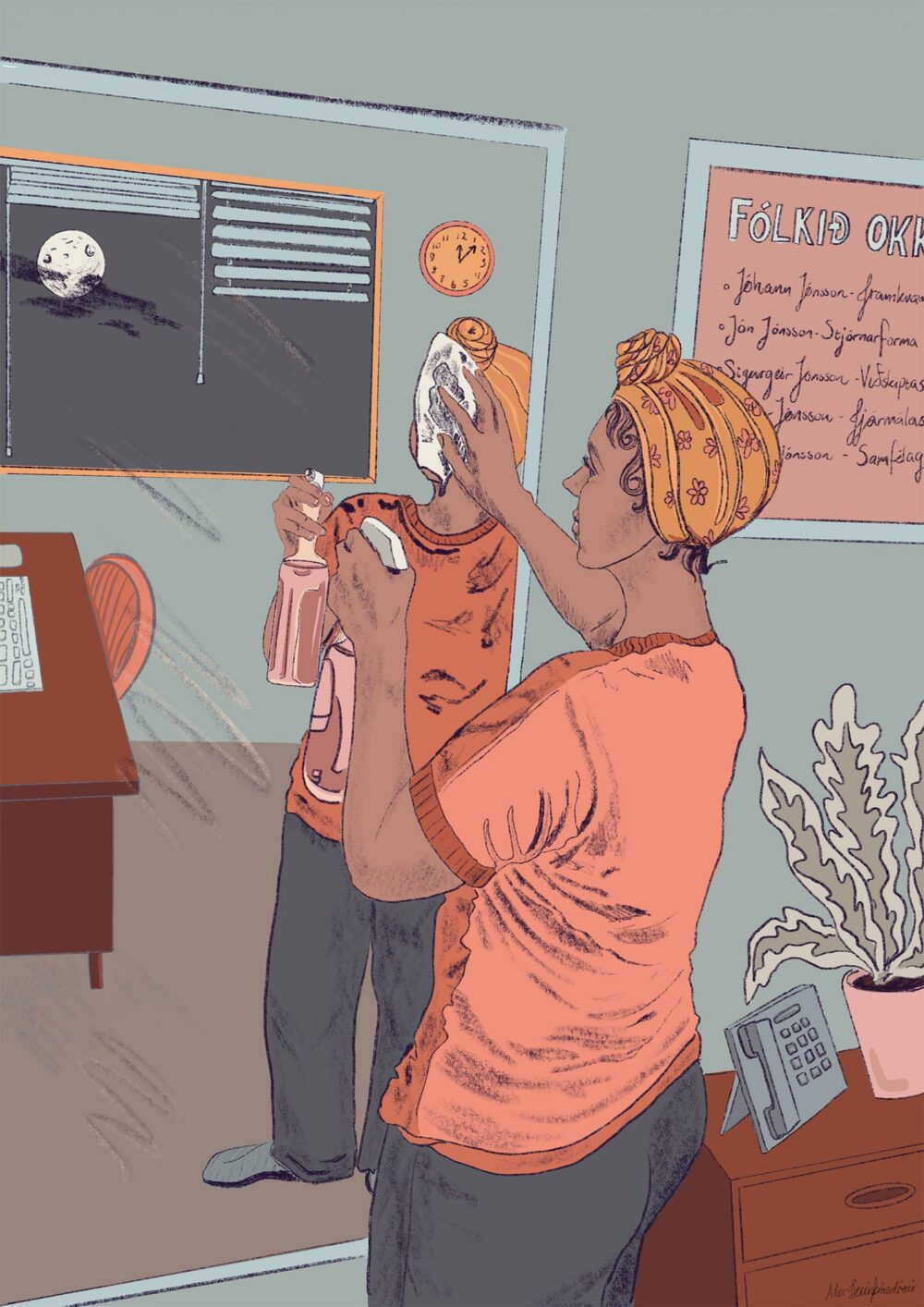
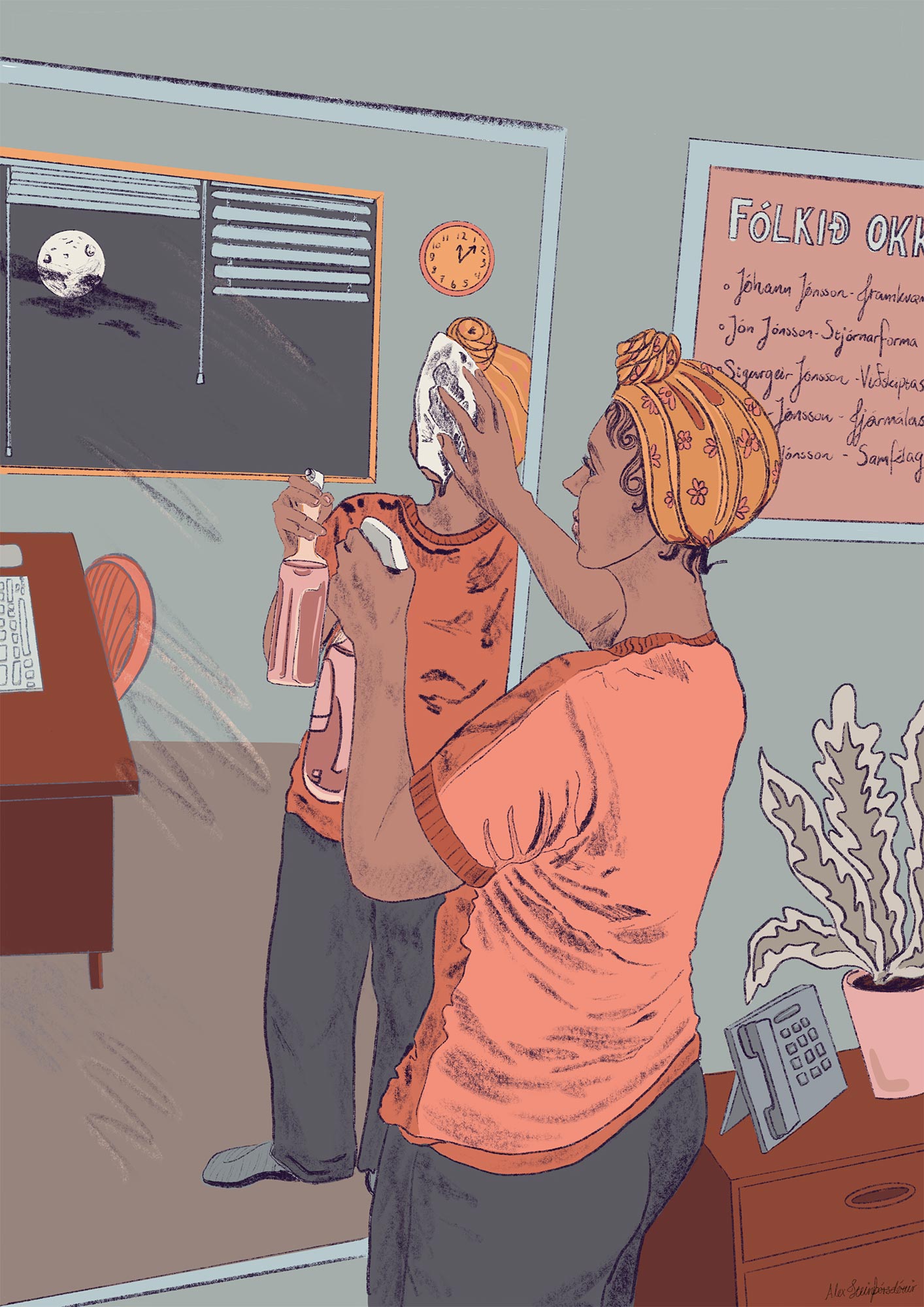
Read more about...